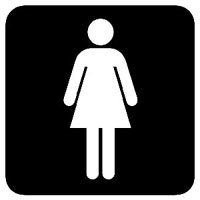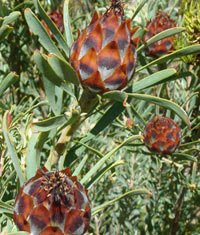
I read some research today which backs up what we believe about the power of the pink rand/dollar/pound (insert your currency here). The research is flawed in that it's mainly male-oriented, but I think it's also interesting in a generalised kind of way, especially because it is entirely South African.
Below, I quote directly from an article on the research findings:
"Demographics show that 89% of respondents are white; 4.81% Coloured; 3.78% Indian and 2.41% black. The bulk of these respondents - 46.39% - are between the ages of 25 and 34.
Education and employment
Mapped against AMPS, a gay person is 12 times more likely to have a post-matric qualification than his/her heterosexual counterparts. Some 73% of respondents are employed full-time, usually in the professional, managerial or administrative sectors. 18.21% are self-employed.
Ebersohn highlights the fact that the respondents show an average personal income of R24,080 per month, some five times the average income in South Africa. “In many cases, we are dealing with DINKS - double income, no kids - with purchase decision making power.”
Activities
While most respondents came from Gauteng (64.60%) and the Western Cape (21.65%), the slant could be seen as having been influenced by media. Mapped against AMPS, this market is 20 times more likely to attend live theatre, opera and concerts; seven times more likely to go to movies and twice as likely to eat in restaurants as their counterparts.
There is also a propensity to be more active than the average in the AMPS universe, with 45.70% participating in walking/hiking; 39.52% jogging/running; 34.02% dancing; 22.68% taking part in adventure sports like skydiving and bungee jumping and even 18.56% enjoying fishing.
“This is a health-conscious market,” says Ebersohn, “who actively participate in activities that support a healthy lifestyle. Around 15% watch rugby, but there is not much appetite for boxing and wrestling.” DIY activities see a participation of 38.49% of this market, and 41.24% attend a gym. Cooking for pleasure, dining out, gardening and studying part time all feature on their list of activities, and some 47.77% take work home regularly.
According to the stats, this is a highly communicative and socially active group, with homosexuals 12 times more likely to send SMSs. Braais and dinner parties are high on the social agenda; around 67% enjoy shopping for pleasure and 54.64% read books.
The music favoured by this market is varied: They are nine times more likely to listen to hard rock; five times more likely to play heavy metal on their stereos; and many favour classical and Afrikaans music.
Shopping and travel
"Gays and lesbians in South Africa are prolific consumers," says Ebersohn. "Small electrical appliances (85.22%) and household accessories (84.19%) are high on their agenda, with furniture and large household appliances following closely."
Products bought using both cash or credit are usually from Game (84.19%), Makro (73.54%), Pick 'n Pay Hyper (72.51%) and Hi-Fi Corporation (70.10%). Incredible Connection, Hyperama/House and Home, Wetherleys/Osiers, Trade Centre follow fairly closely, with all the big name furniture brands named thereafter.
"It is interesting to note that respondents to this study showed a high propensity to use cash rather than credit," says Ebersohn. "Also that most gay and lesbian South Africans spend money on technology, verifying the modern and sophisticated lifestyles this community appears to live."
Clothing shopping is across the board, from Woolworths, Edgars, Truworths and Stuttafords through to Sportsman's Warehouse, Legit and Pick 'n Pay Clothing.
Some 97% of the samples indicate that they go away on holiday, with the prime destination being Cape Town (30.93%). Around 9% choose Durban and the same number opt to go abroad. Thailand, the USA, Italy and the UK are all favourite destinations, and 5.15% get away to African game reserves.
"This indicates that one in three of our respondents visit Cape Town, with their preferred method of travel being flying and then hiring a car on arrival," says Ebersohn.
While the study is ongoing and larger groups of respondents will be encouraged, the results so far are interesting to marketers: They demonstrate that DINKS does apply in this sector; that the community is mobile; and that this is a group that appears to be reasonably recession-proof."
So, what do you think? Agree? Disagree?









